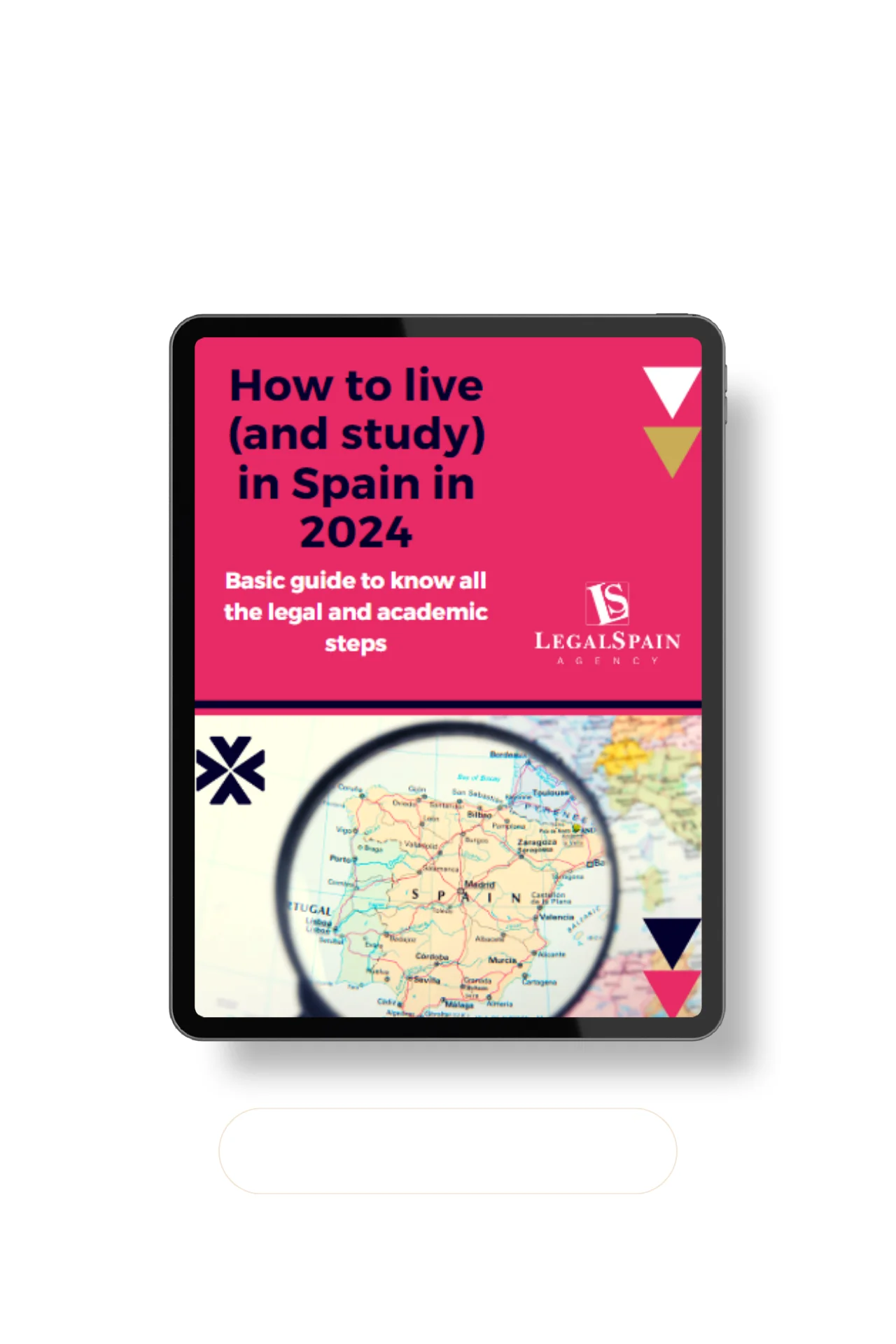If you are interested in giving your career an international boost and enjoying living in another country, it is worth considering the option of studying a face-to-face master’s degree in Spain. If you are interested in studying a face-to-face master’s degree in Spain, in this post we present some steps that you must follow to make your goal a reality.
Steps to study a master’s degree in Spain
1. Research universities and master’s programs in Spain
The first step in studying a face-to-face Master’s degree in Spain is to research the options available in terms of universities and Master’s programs. It is important to consider factors such as the discipline in which you would like to specialize, registration deadlines for each master’s degree, admission requirements, and available scholarship or funding opportunities. By doing extensive research, you will be able to select the programs that best suit your needs and academic goals.
Do you need help searching? Write us!
2. Meet the admission requirements
The second step is to ensure that you meet the admission requirements for the master’s programs you have selected. Admission requirements vary by university and program, but in general, you will be required to have a bachelor’s degree or equivalent degree in a discipline related to the master’s program. A certain GPA, language test results, and other specific requirements may also be required.
Be sure to carefully read the admission requirements for each program and university to avoid unpleasant surprises. If you have any questions or concerns, contact the university’s admissions office for more information.
3. Make the Equivalence of average grades of university studies
If you are an international student who wants to study a face-to-face master’s degree in Spain, you may need to take the Equivalence of average grades from your previous university studies. This is because each Spanish university has its own grading scale and you may need to prove that you meet the admission requirements. The equivalence of average grades is a process that will allow you to obtain an average grade equivalent to the qualification scale of Spanish universities.
The procedure to apply the scales and tables of equivalence of average grades of foreign studies and university degrees is governed by the Resolution of March 21, 2016 and the Resolution of July 21, 2016. These resolutions establish the criteria and procedures for the determination of the equivalence of qualifications obtained in foreign educational systems.
Once you have completed the average grade equivalence process, you will obtain an average grade equivalent to the grading scale of Spanish universities. This note will allow you to demonstrate that you meet the admission requirements of the university where you wish to study your master’s degree.
LegalSpain is an agency with a lot of experience in making equivalences of all educational systems to the Spanish educational system. If you need it, we can carry out the process for you.
4. Apply to universities
Once you’ve researched colleges and programs, and met the admission requirements, it’s time to apply. Most universities in Spain allow international students to apply online, although some programs also require the submission of physical documents.
To apply for your place, carefully follow the instructions of the university. Be sure to provide all the necessary information, including supporting documents, and apply before the deadline. Some universities may also require a motivation letter and/or an interview.
5. Get the student visa
If you are an international student who is not a citizen of the European Union, you will need a student visa to study in Spain. To obtain a student visa, you will need to present various documents, including an acceptance letter from the university, proof of funds, health insurance, a valid passport, and a criminal record certificate. It is important to apply for the visa well in advance to avoid any delay. Check with the Spanish embassy in your country for specific visa requirements and processing times. You can find more information about this procedure here.
In addition to the visa, you must also take into account other legal and administrative aspects. For example, you will need to obtain a foreigner identification number (NIE) in Spain. The NIE is a tax identification number that is required to carry out banking procedures, obtain a telephone SIM card, sign rental contracts, etc. To obtain the NIE, you will need to present certain documents, such as your passport and an acceptance letter from the university.
Conclusion
If you are an international student interested in studying a face-to-face Master’s degree in Spain, you should research the options of universities and Master’s programs available and consider factors such as registration deadlines, admission requirements, and scholarship or funding opportunities. You will also need to obtain a student visa, an alien identification number, and make accommodation arrangements. By planning ahead and preparing properly, you can have an enriching academic and personal experience in Spain.





